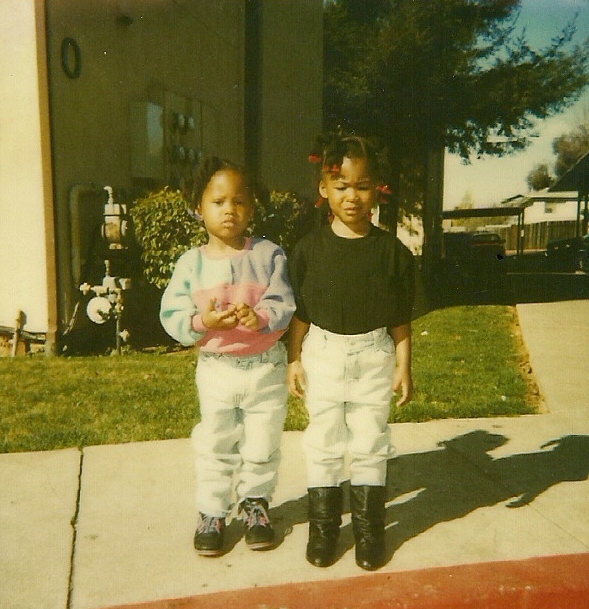Finding Your Way After Religious Trauma: A Reflection on Faith, Healing, and Self-Discovery
Religion has the power to uplift, unite, and provide a deep sense of belonging. But what happens when it also becomes a source of pain? What happens when the very thing that was supposed to bring comfort instead brings anxiety, shame, and self-doubt? If you’ve found yourself grappling with religious trauma, know that you are not alone.
What Is Religious Trauma?
Religious trauma occurs when an individual’s religious experience is harmful, abusive, or deeply distressing. It can stem from rigid expectations, oppressive teachings, or even outright abuse by religious leaders or members of a faith community. The effects can be profound, impacting emotional, cognitive, interpersonal, and even physical well-being.
Signs of Religious Trauma
Religious trauma can manifest in different ways, including:
Emotional & Psychological: Anxiety, depression, guilt, shame, fear, hypervigilance, difficulty trusting others, spiritual disillusionment.
Cognitive & Behavioral: Black-and-white thinking, perfectionism, decision-making struggles, guilt over religious practices, avoidance of religious settings.
Interpersonal: Isolation from loved ones, difficulty maintaining relationships, anger, resentment, fear of judgment.
Physical: Insomnia, nightmares, fatigue, chronic pain.
Other: Substance abuse, eating disorders, suicidal thoughts.
For many, religious trauma is not just about one harmful experience—it’s a pattern reinforced over time. It’s being told your suffering is a test of faith. It’s being shamed for your human imperfections. It’s feeling like no matter how hard you try, you’ll never be good enough.
Was It the Religion or the People?
If you once found comfort in a higher power but now struggle to reconnect, ask yourself this: Was it the religion, or was it the people?
Religious communities often set impossible standards—perfection, obedience, unwavering faith. But when those standards are weaponized, when religion is used to manipulate or control, it becomes deeply damaging. Many people are left wondering: Was my faith the problem, or was it the way others used it against me?
Healing begins with acknowledging the difference. Spirituality and religious institutions are not the same thing. Some find peace in returning to a version of their faith that aligns with their values, while others walk away entirely. Both are valid.
My Story: From Fear to Freedom
I grew up Baptist. Church was more than a place of worship—it was a community, a safety net. Even when my family struggled, the church stepped in to help.
But that same religious foundation was also used to harm me.
Multiple family members wielded their faith as a weapon. They quoted Bible verses to call me wicked, telling me I had a “black heart” and was destined for hell unless I changed. And what had I done? At most, colored outside the lines in a coloring book or playing too rough. I felt too young to be a sinner, but when I wasn’t following directions I was made to feel inherently wrong.
When I struggled, I was told to pray. But what happens when prayers don’t make the pain go away? I started believing the problem was me. That I wasn’t praying hard enough. That God didn’t love me. Because if He did, why would He let me suffer? Why do people experience so much evil in the name of faith?
⚠️ TRIGGER WARNING: This is a real message sent to me from a family member. This was about 10 years ago. I was already an adult receiving this message‼️ Full disclosure, she was upset I let her plants die.
Now, I see the truth: It wasn’t about God—it was about people using religion to control and harm.
The effects of this religious trauma ran deep:
Self-hatred
Shame
Perfectionism
Hypervigilance
Fear of making decisions
Loss of community
Poor boundaries
Delayed social milestones
Mental health struggles
Leaving that environment was one of the hardest and best decisions I ever made. Healing didn’t happen overnight, and it’s still ongoing. But I’ve learned that I deserve a life free from shame. So do you.
Healing From Religious Trauma
Healing from religious trauma looks different for everyone. Some find peace in spirituality outside of structured religion, while others choose to separate entirely. Whatever your path, here are some steps to help you heal:
1. Understand the Nature of Religious Trauma
Recognize that what you went through was not your fault. Trauma is not a reflection of your worth or your faith—it’s the result of harmful systems and people.
2. Redefine Your Beliefs
What do you believe? What values resonate with you, separate from religious teachings? Give yourself permission to question and explore without guilt.
3. Find Support
Seek therapy, connect with others who’ve had similar experiences, and build a new support system. You don’t have to go through this alone.
4. Set Boundaries
If certain religious settings, conversations, or people trigger distress, it’s okay to step away. Protect your peace.
5. Forgiveness (If It Feels Right)
Forgiveness isn’t about excusing harm—it’s about freeing yourself from the weight of resentment. And if you’re not ready or don’t want to forgive? That’s okay too.
6. Reclaim Your Power
Your worth is not determined by religious approval. You are enough, just as you are. Whether or not you choose to reconnect with a higher power, your journey is yours alone.
You Are Not Alone
Religious trauma is real, and it can leave deep scars. But healing is possible. You are not broken. You are not beyond repair. You are worthy of love, belonging, and self-acceptance.
Wherever you are on your journey—whether you’re questioning, deconstructing, rebuilding, or simply surviving—I see you. And I hope you find your way to peace, however that looks for you.
If this resonates with you and you’re looking for support, know that help is available. Therapy can be a powerful tool in unpacking religious trauma and reclaiming your life. You don’t have to go through this alone.







Comments
Post a Comment